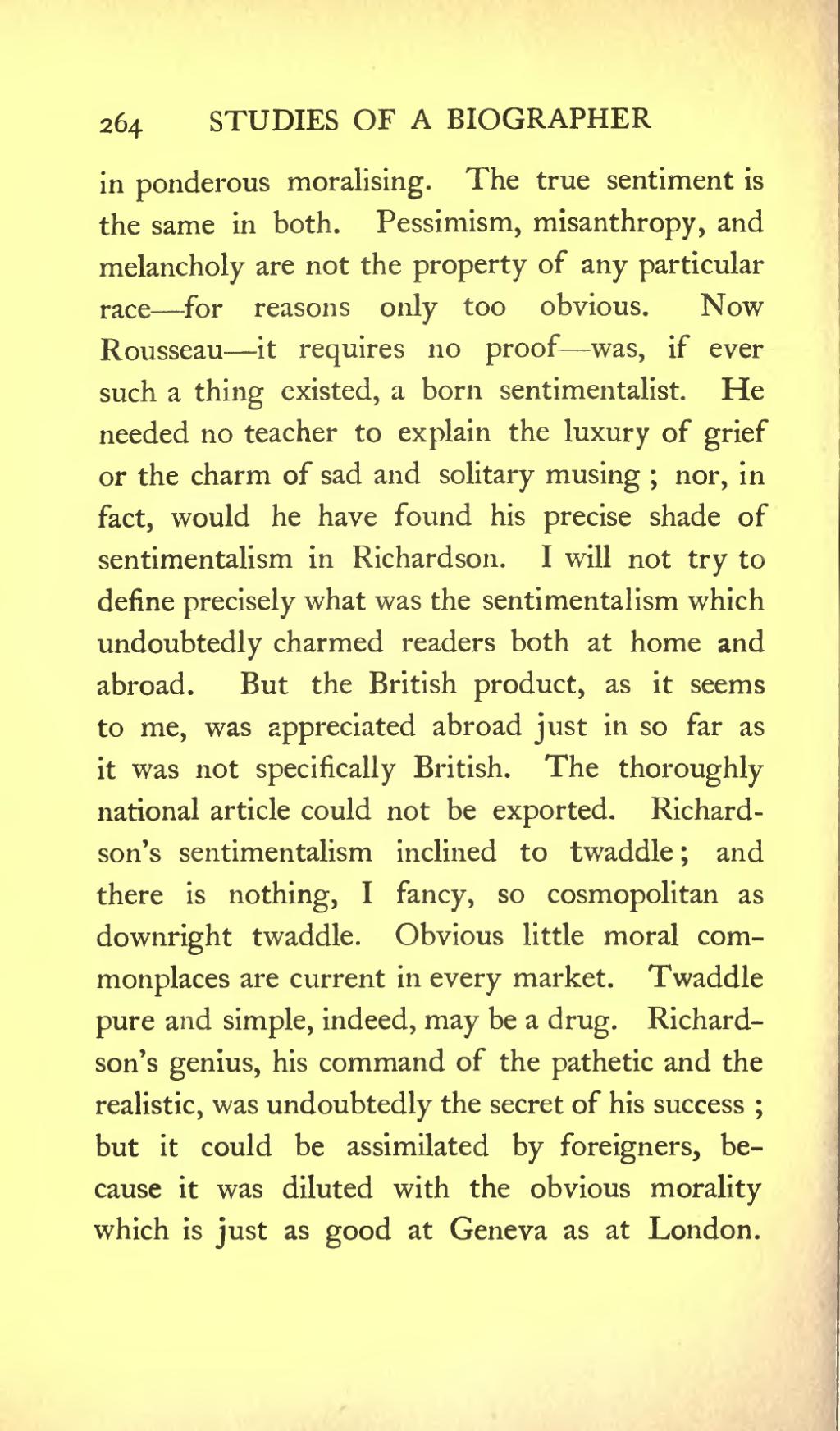in ponderous moralising. The true sentiment is the same in both. Pessimism, misanthropy, and melancholy are not the property of any particular race—for reasons only too obvious. Now Rousseau—it requires no proof—was, if ever such a thing existed, a born sentimentalist. He needed no teacher to explain the luxury of grief or the charm of sad and solitary musing; nor, in fact, would he have found his precise shade of sentimentalism in Richardson. I will not try to define precisely what was the sentimentalism which undoubtedly charmed readers both at home and abroad. But the British product, as it seems to me, was appreciated abroad just in so far as it was not specifically British. The thoroughly national article could not be exported. Richardson's sentimentalism inclined to twaddle; and there is nothing, I fancy, so cosmopolitan as downright twaddle. Obvious little moral commonplaces are current in every market. Twaddle pure and simple, indeed, may be a drug. Richardson's genius, his command of the pathetic and the realistic, was undoubtedly the secret of his success; but it could be assimilated by foreigners, because it was diluted with the obvious morality which is just as good at Geneva as at London.
Page:Studies of a Biographer 4.djvu/278
Appearance

